When you major in communication studies at the University of Nebraska–Lincoln, you’ll learn how to communicate and make connections in a divided world, be an advocate, negotiate differences and better relate with others. Learn about verbal communication, nonverbal communication and mediated messages, as well as how communication erodes and sustains collaboration within and among local, national and global communities.
College
Hours Required
120 credit hours
Minors Available
Communication Studies
Areas of Focus
Health and Well-Being, Public Advocacy and Civic Engagement, and Diversity, Culture and Global Communication
The Nebraska Difference
Curiosity
Discover what moves you with a diverse blend of academic disciplines.
Flexibility & Choice
Customize your degree with course choices. Add a minor or second major.
Hands-On Experience
Build knowledge, skills and experience in and out of the classroom.
Limitless Career Paths
Connect your major, interests and goals to any field.
Program Features
Focus and Range
Communication is a critical skill for professional, personal and public life. Dive deep into your major while taking a wide variety of courses across all areas in the College of Arts and Sciences. Graduate academically well-rounded and eager to keep learning. Use your collaboration and communication skills to address complex problems and make a positive impact professionally and personally.
1-to-1 Academic Advising and Career Coaching
Along with your faculty, professional academic advisors and career coaches will help you make a one-of-a-kind degree plan. We are focused on your success, while at Nebraska and after graduation, whether your goal is employment or graduate/professional school.
Advocate, Negotiate and Relate
Become skilled in using communication in personal, academic and professional settings while connecting closely with faculty and other students in the department.
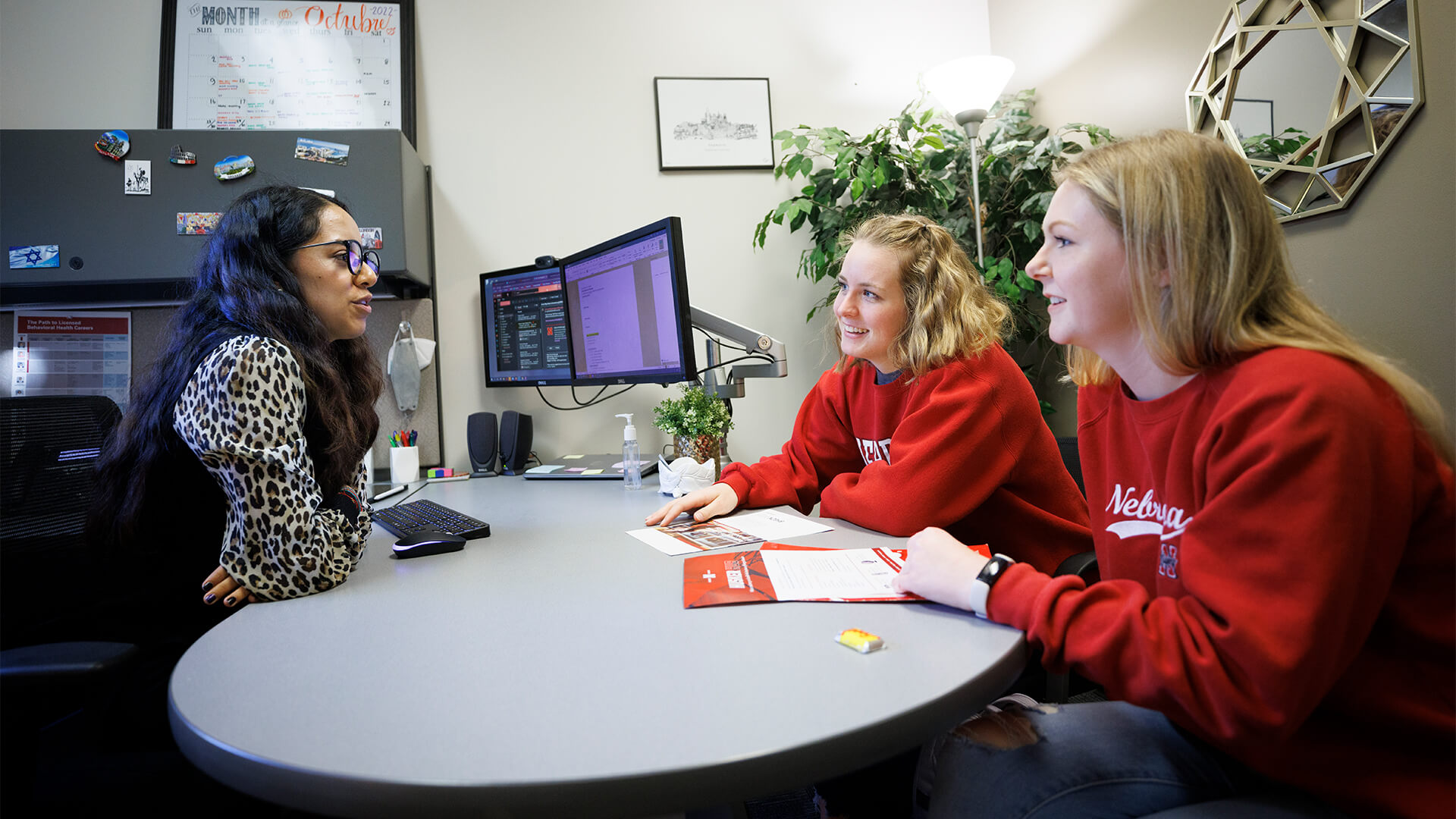
Notable Courses
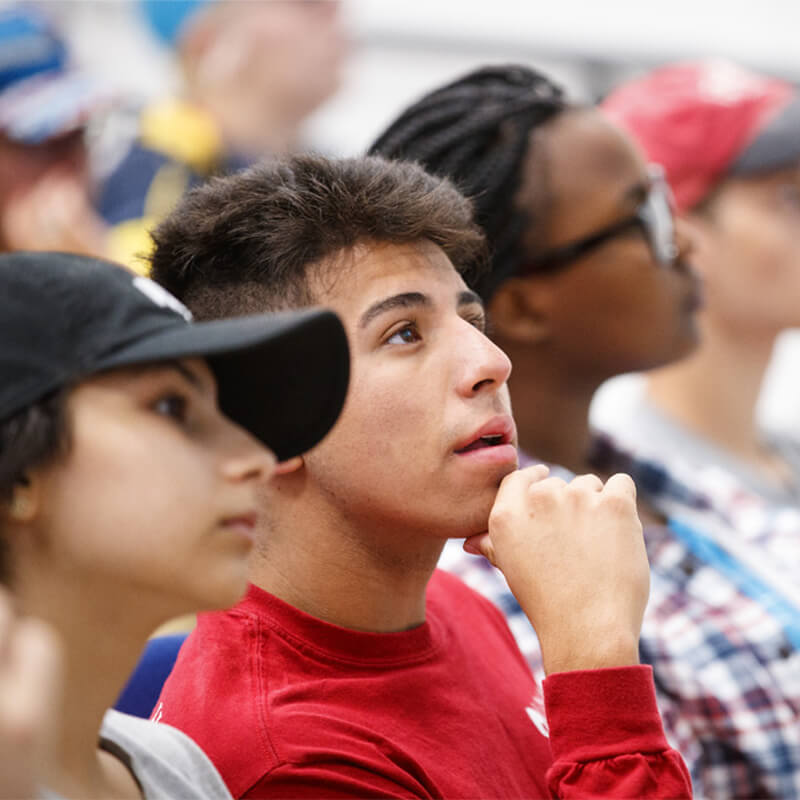
Notable Courses
Public Advocacy and Civic Engagement (COMM 220)
Fundamentals of public deliberation, advocacy and civic engagement in a democratic society. Develop civic engagement campaigns using the resources of rhetorical tradition.
Communication and Popular Culture (COMM 280)
Television, music, film, popular literature, "self-help" literature, etc., using rhetorical and critical methods of analysis to understand the communicative dimension of these cultural forms.
Intercultural and Intergroup Communication (COMM 311)
Communicative processes associated with social comparison, prejudice, discrimination and social conflict in various relational and professional contexts.
Health Communication (COMM 354)
Communication in health care organizations, mediated messages in the marketing and promotion of health information, consumer advocacy and politics of health care.
Rhetoric of Sport and Games (COMM 440)
Examination of rhetorical theories and perspectives viewed through the cultural lens of sports.
Communication and Social Identity (COMM 465)
Overview of theories of communication and social identity. Focus on identity and social categorization, language use and attitudes and intergroup contact.
Huskers Do Big Things
Internships
- People services intern, Nelnet
- Marketing intern, Hudl
- Women's advocate intern, Friendship Home
- Executive human resources intern, Target
- Attractions intern, Disney World
Careers
- Child and family services specialist, Department of Health and Human Services
- Coordinator of student athlete development and diversity & inclusion, University of Kansas
- Patient services, Bryan Health
- Assistant director of undergraduate admissions, Long Island University
- Human resources generalist, United States Government
Graduate Schools
- Master’s degree, International Studies, University of San Francisco
- Master’s degree, Business Analytics, University of Nebraska–Lincoln
- Master’s degree, Integrative Health and Wellness, Creighton University
- Master’s degree, Educational Administration, University of Nebraska–Lincoln
- Juris Doctor degree, Yale Law School
Outside the Classroom
Depending on your major, interests and goals, you can choose to do research, work as an intern, study abroad, become a leader or serve your community. The university’s Experiential Learning requirement ensures you have at least one of these transformative learning experiences; students in the College of Arts and Sciences typically complete at least two.
Research
Work alongside a faculty member as a research assistant or design your own research project through the Undergraduate Creative Activities and Research Experience (UCARE) program.
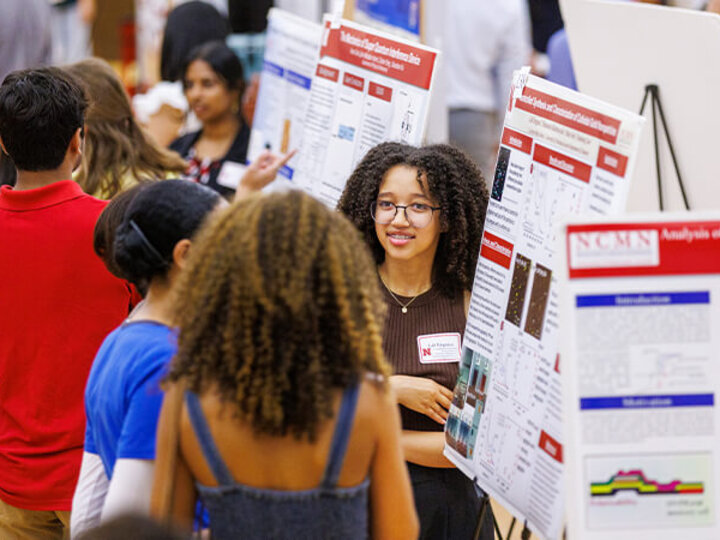
Internships
Explore a wide variety of local, national and international internships. Connect with our career coaches to identify opportunities and document the skills and experience you gain on the job.

Education Abroad
Join other students in Ireland and Northern Ireland to learn about conflict and peace or connect with our Global Experiences Office to find an affiliate program in almost any location you can imagine.
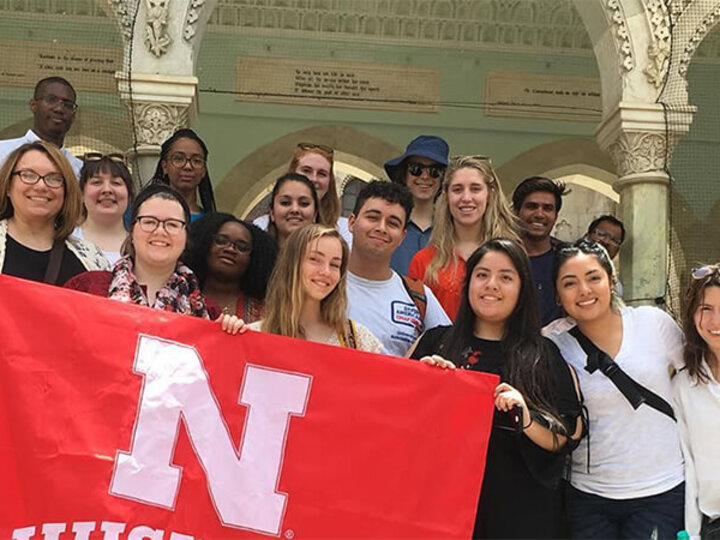
Leadership and Service
Get involved in one of the 540+ student organizations available at Nebraska. Meet students who share your interests, become a leader or serve the community.
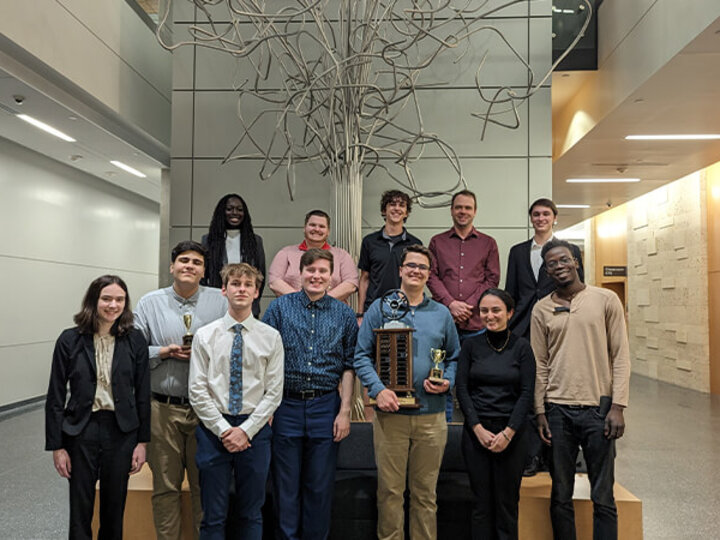
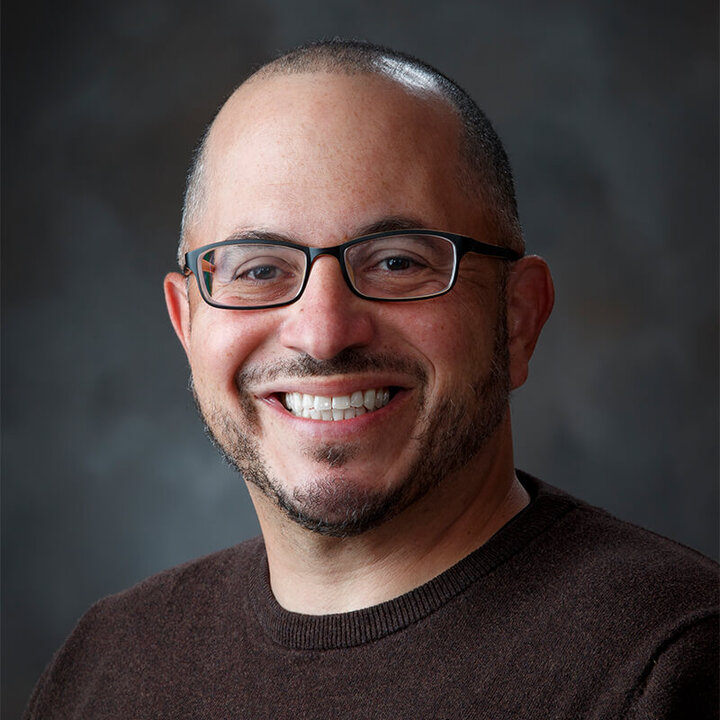
Featured Faculty
Jordan Soliz, Professor
Dr. Soliz studies communication and intergroup processes in family, personal and community relationships. He aims to broaden the understanding of multiracial, multiethnic and interfaith families in the United States and is the supervisor of the Communication and Identity Lab.
Academics & Experiential Learning
- Our motto is Academics + Experience = Opportunities. Employers and graduate/professional schools are looking for students who have a strong academic background and hands-on experience.
- Communication studies majors regularly engage in research or internships, and many study abroad or get involved in service or leadership on campus and beyond.
Career Preparedness
- COMM 286: Business and Professional Communication. Develop verbal and listening skills, oral presentation techniques, small group problem solving/leadership, interviewing and organizational communication.
- CASC 200: Career Development in Arts and Sciences. Explore your interests, abilities and values while identifying career options and preparing to apply for internships, jobs or graduate/professional school.
Community
- Participate in the Cornhusker Speech and Debate Team, which has claimed the Big Ten Conference title seven years in a row.
- Serve on the Communication Studies Student Advisory Board and shape the experience of all students in the major and minor.